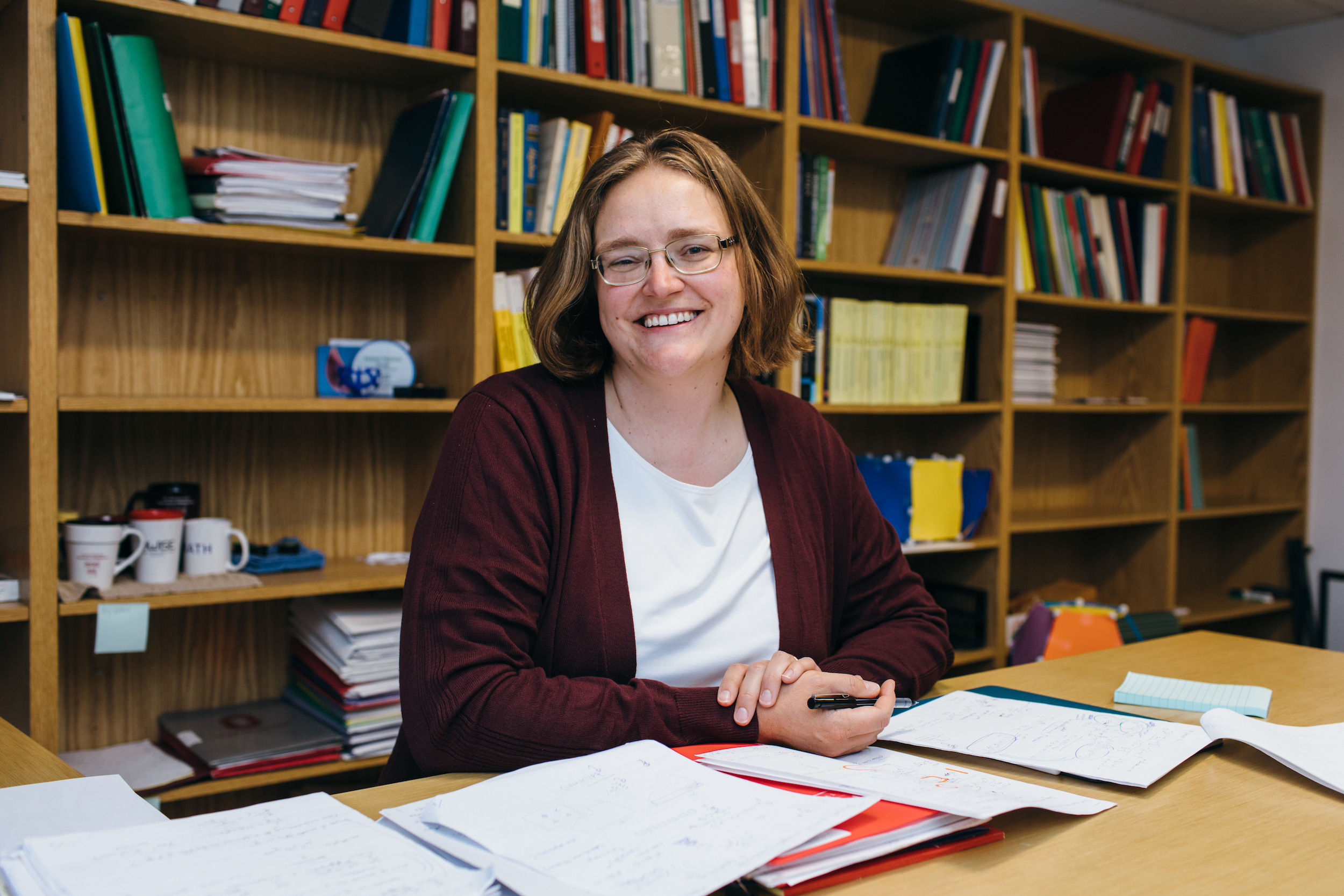
Melanie Matchett Wood Recipient of 2022 MacArthur Fellowship
Earlier today, the John D. and Catherine T. MacArthur Foundation announced the 2022 MacArthur Fellows, recipients of the so-called “genius grant.” The Fellowship—including a generous stipend bestowed over the course of five years with no conditions—is awarded annually to talented individuals in a variety of fields who have shown exceptional originality in and dedication to their creative pursuits. Harvard Professor of Mathematics and Radcliffe Alumnae Professor Melanie Matchett Wood is among this year’s group of MacArthur Fellows for her work in combining a breadth of mathematical approaches to reveal new ways to see fundamental properties of numbers.
“I am extremely honored to receive the MacArthur Fellowship,” Wood said. “I feel so thankful and humbled by the confidence the MacArthur Foundation is showing in the direction of my research. My hope is to use the stipend to help bring together mathematicians from different parts of the field so we may learn from each other and see how the combination of perspectives can spur new developments in math research.”
According to a statement by the MacArthur Foundation, “Wood’s research is often motivated by questions in arithmetic statistics. Much of mathematics research focuses on developing proofs for conjectures, but in some cases, it is not feasible to check that a hypothesis is true for all possible cases…Wood takes an arithmetic statistics approach to such problems. She develops probabilistic models for number theoretic objects…to reveal how they will behave on average. Wood and collaborators developed such a model for the distribution of ranks of elliptic curves.”
The statement also touched on the new techniques Wood introduced to determine the behavior of sandpile groups of random graphs, and her research on the Cohen-Lenstra heuristics, which has advanced understanding of the structure of these groups and for more general families of situations. “Wood is revealing new properties of natural numbers that are relevant to other mathematical conjectures and theorems, thereby setting the stage for new discoveries in number theory in the future,” the statement concluded.
This aligns with the three main criteria the MacArthur Foundation has for its Fellows: exceptional creativity, the promise for important future advances based on a track record of significant accomplishments, and a potential for the Fellowship to facilitate subsequent creative work. It is not a lifetime achievement award, but rather an investment in a person’s originality, insight, and potential. It is meant to enable recipients to exercise their own creative instincts for the benefit of human society.
Nominations for the MacArthur Fellowship are made by a constantly changing pool of invited external nominators chosen from as broad a range of fields and areas of interest as possible. They are then evaluated by an independent Selection Committee composed of about a dozen leaders in the arts, sciences, humanities professions, and for-profit and nonprofit communities. After a thorough, multi-step review, the committee makes its recommendations to the President and Board of Directors of the MacArthur Foundation. Over 1,000 people have been named MacArthur Fellows since 1981.